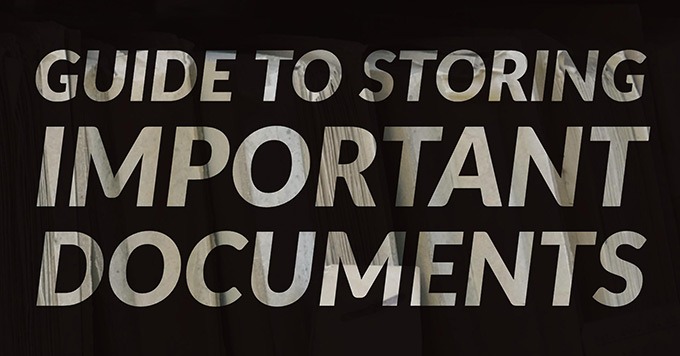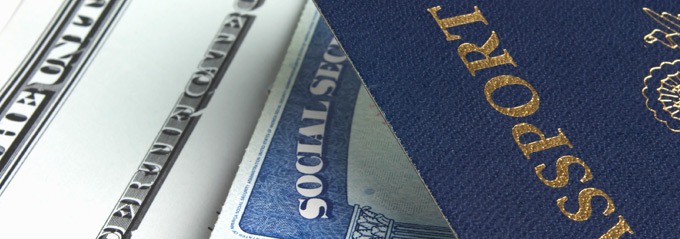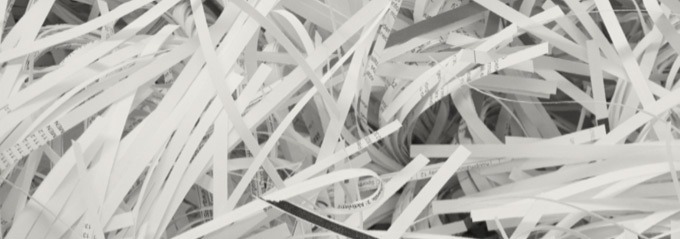
A guide to storing important documents: In some ways, the story of our life is told on paper. Birth, marriage, purchases, travels, finances, insurance policies, and legal issues can all be found on official, often government-issued documents that we must collect, store and keep within arm’s reach should we ever need to refer to them. And then there are the financial documents tied to things like our mortgage or car loan paperwork, information about student loans, bank accounts and credit card accounts, and more.
For many of us, this creates a problem. Just how long do we really need to hold on to many of these documents and when — if ever — can some of them be relegated to the shredder?
To address those questions, I’ve prepared a simple guide to help you put your life’s paper trail in order. But before I begin, allow me an important disclaimer. I’ve separated the following information into three categories. However, not all of the items listed in each category are a perfect fit for the specified timeframe I’ve given. In those cases, I’ve provided additional information to better guide you.
Documents that Should Never be Tossed

These are the documents that you should never, ever throw out or shred. I’d actually recommend going a step further and protecting them in a fireproof safe or at your bank or credit union’s safety deposit box.
- Birth records
- Social Security cards
- Passports
- Military records
- Adoption records
- Marriage certificates
- Death certificates
- Retirement and pension records
- Divorce decrees
- Important correspondence
Loan paperwork, including contracts, for any and all bills you’re still paying on such as your home, car or student debt. Also, when you pay off the debt, indefinitely keep a copy of the payoff statement as issued by your lender.
Any and all legal documents such as wills or those relating to power of attorney or health care proxies.
Documents authenticating art, jewelry or other valuables’ worth and certificates of authenticity (these can be discarded if you sell the item).
Documents to Hold on to For Several Years

While you may not have to hang onto these documents for life, you probably want to wait a while before feeding them through the shredder. Documents in the “keep for a while” category include:
- Tax returns and supporting documents should be retained for at least seven years. This is because the IRS has the right to randomly audit you three years after you file your taxes or six years after if the agency suspects you didn’t report 25 percent or more of your income.
- Statements for your retirement plans should be kept as long as you have money or other assets in your account.
- End-of-year account statements on any investments such as bonds, mutual funds or stocks should be kept for as long as you have the investment. Even if you sell, you might consider keeping these documents indefinitely if you need them to file taxes.
- Insurance policies like those on your home and vehicles should be retained for a year or until you renew the policy. In the case of life, disability or long-term care policies, those should be kept safe as long as the policy is in place.
- Any documents related to your purchased home should be kept as long as you own the home. This includes any records of renovation or work that needed a permit or city inspection.
Documents to Keep For a Year or (much) Less

Get your shredder ready. There are a lot of finance-related items that simply don’t require long-term storage solutions:
- Monthly bills such as cable, phone or utilities can often be thrown out once you are sure they’re correct. However, if you need them to provide proof of deduction on your tax returns, hang on to them as long as you would any other tax-related docs.
- Monthly and quarterly investment statements and bank statements. They can be tossed one you’ve reviewed them for accuracy. Plus, you’ll receive an end-of-the year statement that provides a recap.
- Credit card statements can be kept until you know there are no false charges or incorrect fees and that everything else is in order. In some cases, statements showing large purchases with production protections, like a warranty, or tax-deductible purchases can be kept until you prepare and file your taxes (again, any tax-related documents can be kept for at least seven years to be on the safe side).
- Pay stubs should be kept until you are sure they are in line with your yearly W-2 statement. However, if you’re looking to buy a home, your lender will likely want to see a couple of month’s worth of pay stubs. In that case, hold on to them until you close on your home.
- Medical bills should never be thrown out until you are certain your claim has been paid or you yourself have made the payments in full. But, like large purchase that might be deducted on taxes, if your medical bills represent deductions you can make come tax time, make sure to keep them until you file and afterwards.
Before I wrap up, a word about electronic documents. If you choose to store everything in this manner, be sure to back up everything on an external hard drive that is stored in a safe place, preferably with those documents I’ve advised you never discard. This is simple way to ensure all of your important papers are never lost and will afford you peace of mind.
If you have any questions related to document storage or any other financial matter, our team here at American Credit Foundation is happy to assist you. Contact us for a free, no-obligation consultation to get started.